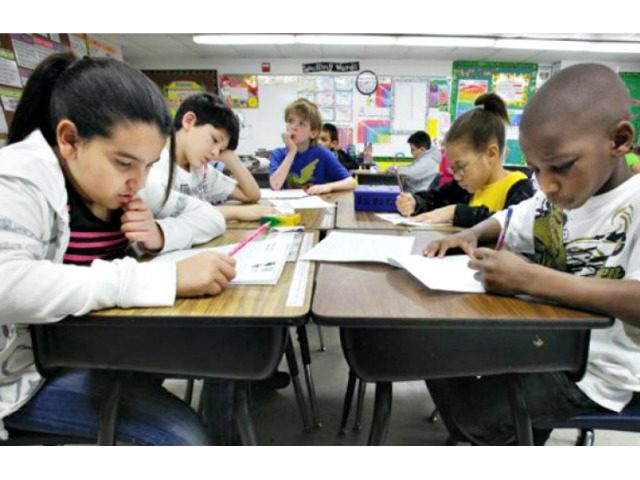A group of parents and students has filed what it hopes will be a landmark lawsuit against the State of California for its public schools failing to teach literacy.
Public Counsel and the prestigious Law Firm of Morrison & Foerster sued the State of California, the State Board of Education, the State Department of Education, and State Superintendent of Public Instruction Tom Torlakson for their collective failure to provide every child in the state access to literacy as required under the California Constitution.
The lawsuit, filed in Los Angeles County Superior Court on behalf of parents of students at two Los Angeles schools and one Stockton school, alleges that it is an urgent civil rights crisis that California has the three worst-performing schools and 11 of the 26 worst-performing public school districts in the nation for the ability of students to read and write.
Based on California’s testing standards, the suit states that “under-performing schools throughout California have student bodies consistently achieving less than 10 percent, and frequently less than 5 percent, proficiency in core subjects like reading and math.” To put the crisis in perspective, only 8 children out of the 179 students tested at Los Angeles’ La Salle Elementary were found to be proficient by state standards.
A Los Angeles Unified School District report from an attendance task force found that 800,000 students, or about one out of every seven enrolled students, was “chronically absent” for at least 15 days per year and at risk of dropping out.
Lead attorney Mark Rosenbaum stated that California has 13 percent of the worst-performing U.S. school districts. He added: “Public education was intended as the ‘great equalizer’ in our democracy, enabling all children opportunity to pursue their dreams and better their circumstances. But in California it has become the ‘great unequalizer.”
Rosenbaum referred to the state’s own literacy experts’ report, which concluded in 2012 that “there is an urgent need to address the language and literacy development of California’s underserved populations…”. Despite continuing concerns over the last five years, Rosenbaum argued that the state took no meaningful corrective actions.
During the five-year period following the grim literacy report, per-student spending on California K-12 educational programs did jump by 66 percent, from $9,370 per student in 2012-2013 to $15,521 per student for the 2017-18 school year.
But that concerted effort to improve student literacy was torpedoed in late 2015 by President Barack Obama’s signing of the Every Student Succeeds Act (ESSA), requiring school evaluations to include at least one “non-academic factor.” ESSA replaced the No Child Left Behind Act, which relied almost exclusively on regular student testing for grade-level reading and math skills.
Unable or unwilling to improve literacy test scores, the California Board of Education in September of last year voted unanimously to undermine the testing by incorporating other non-academic factors in rating schools that include graduation rates, college preparedness, and rates at which non-native speakers are learning English.
Under the new educational evaluation system adopted by the Board of Education, each California school will not receive an overall literacy rating, but rather receive year-to-year comparative results for how it performs across categories of different student groups.
The Los Angeles Times called the vote the end of a long philosophical shift away from judging schools using only their test scores, “as more people agree that numbers alone can never capture the complexity of classrooms.”
Photo: file

COMMENTS
Please let us know if you're having issues with commenting.